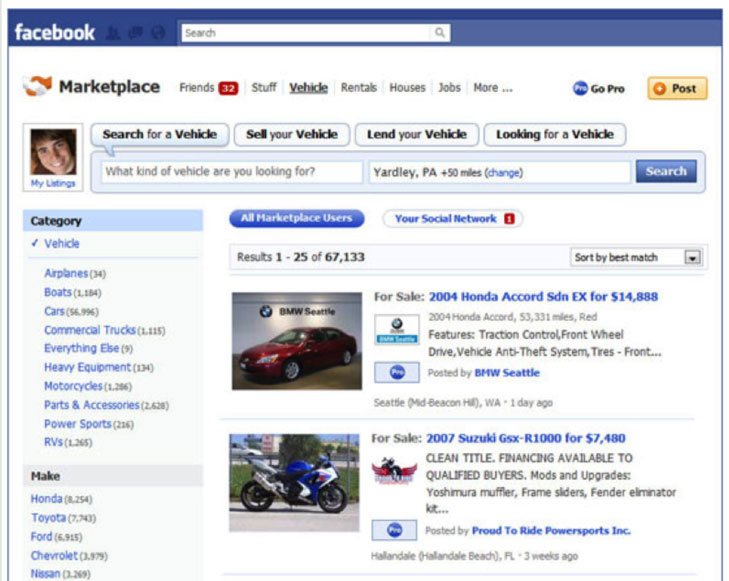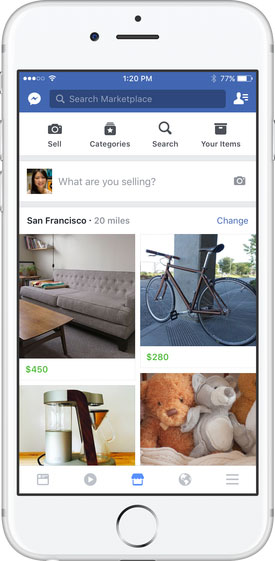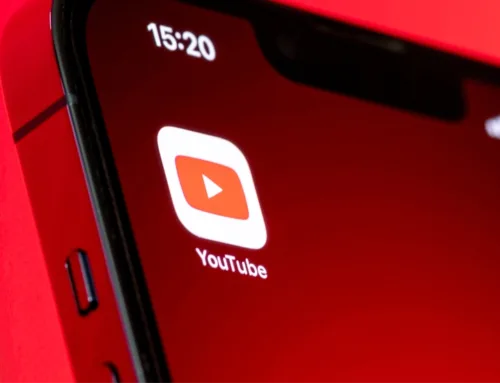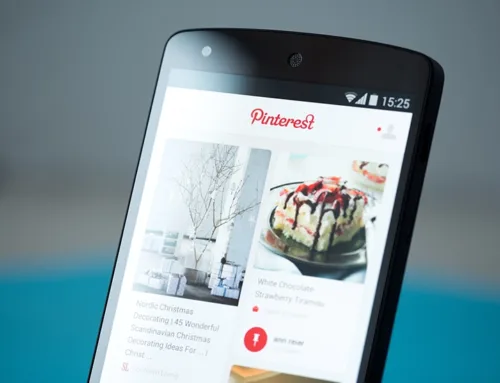As you may have read recently, Facebook has just launched its own marketplace for private individuals. Our Facebook ads e-commerce agency takes a look at this new feature. For the moment, the service is only being tested in a few English-speaking countries. But there’s no doubt that it will soon arrive on our shores, competing with other private-to-private sales services such as Ebay or leboncoin, for example.
What’s new on Facebook’s marketplace?
In any case, let’s just say that you’ll be able to judge the person you’re talking to by parameters that you won’t find on other platforms, such as leboncoin, which, even today, remains totally anonymous.
The second interest, and this is for Facebook, is to take advantage of exchanges and transactions that already exist, even if the platform doesn’t currently benefit from them. For the moment, there are no commissions. In other words, Facebook, at least in the U.S., hopes that by making its marketplace official, and by giving it prominence (the marketplace button replaces the Messenger button in the iOS app), it will hurt the major classified ad sites, including Craiglist, the number one classified ad site in the U.S.. And there’s a good chance that, by integrating its marketplace into the user experience on its platform, Facebook will reap a good number of transactions at the expense of its competitors. All the more so as the marketplace has also integrated the possibility of a very powerful and precise geolocation search. Something its competitors don’t really have (and still don’t have in France).
The third interest is the integration of Messenger into transactions. Facebook’s chat system, well established in the habits of its users, will render proud communication services. Much more practical than exchanging e-mails or SMS messages!
What else is missing from the marketplace?
Apparently, Mark Zuckerberg and his teams wanted to move fast and skipped over two essential features:
Buyer/seller rating. We know how important trust is on marketplaces. And not allowing both buyers and sellers to be rated makes it a little more complex for the latter, who may find it difficult to make up their minds if the person they are dealing with is not directly one of their “friends”.
Payment. It will not be integrated into the marketplace. A pity, of course, as this does not provide the same level of transaction security as Ebay, for example. Here again, if there is a dispute, buyer and seller will have to work it out between themselves, or even call in the police, as Techcrunch points out, not without irony, in its review of the marketplace.
But don’t be fooled. It’s certain that, after a few weeks of learning and feedback, Facebook will also integrate these functionalities if the test underway in the United States proves successful. And it surely will. In other words, in one fell swoop, the United States, like France, will soon find itself with a new Ebay-leboncoin as big as it is, if not bigger!!!!
With its marketplace, Facebook continues to build its own web, sheltered (or almost) from the outside world. With an impressive user base of over 1.5 billion worldwide, there’s no doubt that we’ll have to brace ourselves for a shock, and expect our competitors to suffer as a result.
Can Facebook become a marketplace like any other?
Will professionals be able to benefit? For the moment, no one can say. But we shouldn’t be surprised if small merchants use Facebook as an additional sales channel. In this context, it can be useful to understand the tracking of Google and Facebook ad campaigns.
Facebook will give them greater visibility, but above all the advantage of being able to target potential buyers much more effectively, thanks to its user knowledge algorithms.
In fact, even if the items for sale can be presented as in a gallery, the other way to find them is simply to see them appear in your timeline, as a user, according to criteria determined by your choices. In exactly the same way as Youtube videos are suggested to users when they first watch them. The chance of being in line with users’ needs will therefore be very great and very interesting for potential sales.
As for brands, it’s likely that they too will be able to use this marketplace mechanism, although for the time being there doesn’t seem to be any question of it. It remains to be seen whether Mark Zuckerberg will want to transform his platform entirely… into a marketplace…
Mis à jour le 30 April 2025
Mis à jour le 30 April 2025






